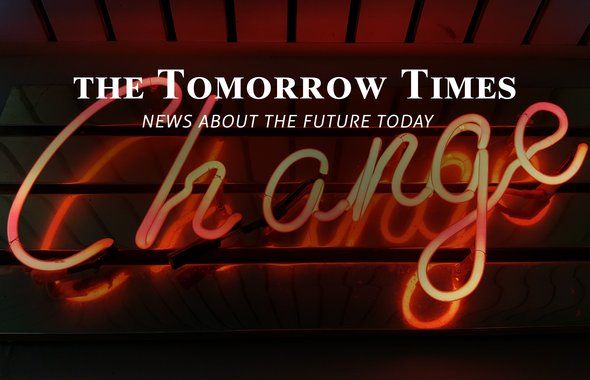What could an inclusive and resilient post-pandemic 21st century look like, and what system can support this vision? In this edition, we celebrate sustainable innovations, joint forces and efforts to re-build a better and more resilient society.
While parts of our society have, climate change has not stopped for COVID19. The current crisis provides an unprecedented momentum, a stimulus never before shared by so many people, to build back better societies and economies. Re-shaping cities and business at their core, finding or refining the values which contribute to the layers of society in a positive way, are now a must. Cities and companies can serve as catalysts to boost positive effect for the whole of society, even though they are just a small parts of the whole system. A window of opportunity worth $10 trillion that could create 395 million jobs by 2030.
“The most important question companies should ask themselves: Do they want to be around in 5 years? The only way they can continue, is to provide true value for society. Everybody can take that step, but they have to dare!” Our founder, Tom Bosschaert, during the recent live webinar 'Sustainability & the City'.
Stay curious, keep up to date, and get inspired, all in a quick read.
Follow these periodical monthly updates of tomorrow’s sustainability news today, by subscribing to the Tomorrow Times.
Energy & Environment

- United in Science 2020 Report. Climate change has not stopped for COVID19, according to this new report compiled by the World Meteorological Organization (WMO) under the direction of the United Nations.
- Loss of bees causes shortage of food. A lack of bees in agricultural areas is limiting the supply of some key food crops, a recent US-based study has found.
- ‘Reforestation’ and ‘Afforestation’, what is the difference? Large-scale reforestation projects are underway in many countries. Recent research investigates the effects of non-native plants on the carbon cycle.
Business & Economy

- Google aims for zero carbon emissions. Google wants to be one of the first major global companies to become zero-carbon by 2030, the global tech giant recently announced. The commitments made are expected to directly create more than 20,000 new jobs.
- Energy Transitions: Big Green meets Big Oil revenues. Researchers at Imperial College London recently concluded that renewable energy companies delivered better returns than their oil competitors. They also found that their shares were subject to less price volatility.
- Opportunity to reset our relationship with nature. COVID19 has presented us with a vital opportunity, the WEF report The Future of Nature and Business highlights how we can enrich the global economy whilst protecting our planet. There is no future for business as usual, but rather a window of opportunities worth $10 trillion that could create 395 million jobs by 2030.
Science, Technology & Design

- EU Innovation Fund launched. This is one of the world’s largest funding programmes for the demonstration of innovative low-carbon technologies, sharing the risk with project promoters to help with the demonstration of first-of-a-kind highly innovative projects.
- AI helps scientists upcycle waste carbon. Researchers at US-based Carnegie Mellon University and Canada-based University of Toronto are using artificial intelligence (AI) to accelerate progress in transforming waste carbon into a commercially valuable product with record efficiency.
- Sustainability standards join forces. For the first time a company purchasing certified products such as Better Cotton Initiative, Fairtrade and FSC, will be able to report lower emission factors in line with the Greenhouse Gas Protocol and thus lowering their corporate carbon footprint.
Urban Environment

- Brooklyn Bridge Forest. This is the name of the announced winner of the Reimagining Brooklyn Bridge competition, an international design competition that aims to spark a new public conversation about New York City’s infrastructure inspired by COVID19 transformations. A great example of how both adaptation and mitigation can be implemented in an urban centre, improving quality of life and spurring meaningful climate action.
- Data modelling, a powerful tool for cities. Cities are complex and dynamic systems where phenomena are often analyzed individually. Data once unavailable is now publicly accessible. Digital twins for cities is a recent concept which uses high-performance computing technologies for analyzing, integrating, and visualizing data describing complex dynamic processes to help to improve urban planning.
- Melbourne Green Factor tool. A tool that would help developers measure the green credentials of their design at the planning stage, makes it easier to comply with proposed new standards. “Sustainable design can and should play a role in supporting our economic recovery from COVID19”, councillor Nicholas Reece.
Unexpected and Intriguing

- Free Tools for Sustainable and Circular Design. Leyla Acaroglu, founder of unschools.co, introduces us to a range of free, open-access toolkits.
- Glimpses of a car-free Manhattan. If you added up all the space Manhattan devotes to cars, you’d have an area nearly four times as large as Central Park. This interactive article walks you through some engaging visual solutions to give back space to people.
- Is a world without trash possible? National Geographic tries to answer this question.
- From coal mines to sustainable heat. This British village is heating homes with water from a flooded coal mine.
Have you seen a news item suited for 'The Tomorrow Times'? Let us know and we'll consider including it in the next edition.
Previous Tomorrow Times editions
Find all Tomorrow Times editions and newsletters here.
22 september 2020

